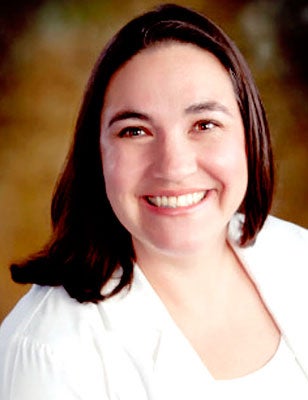Cooper predicted she’d work here
Published 12:27 am Tuesday, February 19, 2019

- Jesanna Cooper, M.D., said local OB patients have excellent outcomes.
‘Recruited’ as teen, she’s now part of OB/GYN practice
Jesanna Cooper decided to become a doctor when she was 14.
“My father had colon cancer,” she recalled. “I was a daddy’s girl, and his oncologist became such an important person to our family, that’s what I wanted to do.”
When she was 16, her father, an educator, asked a former student who was a family practitioner if his daughter could spend some time shadowing him.
“There was a push then for people to go to rural areas,” she said. “He took me to a kind of job fair where towns from Alabama were trying to recruit family practice doctors.”
Cooper chatted with several recruiters there. And even though she had no plans to become a family practitioner, she went home and told her father, “I’m going to go to Andalusia.”
She can’t remember what she learned about Andalusia that day – maybe it was photographs of beautiful houses, maybe she was told it was close to the beach.
Whatever sparked it, the statement was oddly prescient. These days, Cooper – who now has an “M.D.” behind her name – spends lots of time in Andalusia.
Cooper grew up in Shelby County, where both of her parents taught at Indian Springs School, a boarding school. The family lived on campus. In college at the University of Texas in Austin, she pursued a liberal arts major, and filled up her electives with the pre-med classes she needed for medical school.
“My father was a history professor and my mother was an English teacher. I didn’t want to be a teacher, but I loved to read, and I wanted to study those things,” she said. “So much of medicine is about people, so I think it’s important to have perspective.”
She went to medical school at UAB, still aiming to become an oncologist. But she quickly learned it wasn’t a good fit for her.
“They encourage you to set up rotations in order of your interest,” she said. “I had OB set up last. I didn’t love any of my rotations, but I loved my OB rotation, and I didn’t expect it.”
In retrospect, she said, it makes sense.
“I had always been interested in women’s issues, and there is a lot of overlap with domestic violence, sexual abuse, human rights, childbirth, and how give birth. These social and philosophical issues affect us for the rest of our lives.”
Cooper went to New York City for her residence.
“I figured for four years I could live anywhere I wanted,” she said. The best part was that the patients she saw were from different cultures – including patients from Chinatown, Russian immigrants, and the Hasidic Jewish population.
“I got to see a lot of different cultural attitudes toward childbirth,” she said.
For instance, in the Hasidic Jewish community, dads don’t enter the delivery room until the baby has been born, cleaned up and wrapped up.
“They stood outside the door, saying their prayers,” she said.
But she always planned to come back to Alabama.
“I knew there were physician shortages here,” she said. “And my education at UAB was subsidized by Alabama taxpayers. I wanted to come back, and give back to the community.”
Dr. Cooper met her husband in New York, and they settled initially in Gadsden.
“Then we had children,” she said. “And we needed grandparents.”
They moved back to Birmingham, where Dr. Cooper has a practice.
“It has been wonderful,” she said. “Mother is retired now, so she takes care of the kids when they’re sick, and picks them up for us.”
Even with the Birmingham practice, Dr. Cooper said she’s always been drawn to smaller settings, and she says they are better places to give birth.
“I know that doesn’t square with the economics of childbirth,” she said. “But here, you have this personal feeling. I can tell by the way the nurses interact with the patients. They know their names and they remember their names when they come back.”
As she was building her practice in Birmingham, she also did locum work, and Andalusia was one of the places she worked. She liked it so much, she now is a “permanent part-time” with Covington Obstetrics and Gynecology, seeing patients on Fridays, Mondays and Tuesdays, and taking call at the hospital every other weekend.
“I love the community feeling of it,” she said. “I’m not sure people know how good the outcomes are here.”
Locally, the C-section rate is 20 to 24 percent. Nationally, the average rates for C-sections are 33 to 35 percent, and they are 40 to 50 percent in Alabama.
“Dr. (Mike) Wells and Dr. (Lee) Carney have done a good job with that,” she said.
Dr. Cooper said she also is impressed with the support for breastfeeding here.
“This is grassroots driven,” she said. “But there are 12 nurses the hospital sent to be certified for lactation training.”
In addition to the training available from nurses, there is a mom-to-mom breastfeeding support group that meets monthly at the hospital.
“The longer you breastfeed, the more the risk goes down for diabetes, stroke, and breast cancer,” she said. “It’s one of those things that has to have support on the front end. It’s hard because of the way we have our babies and go back to work.”
But breastfeeding affects the way a child’s palate develops, and can cut sleep-related deaths in infants by a third.
Dr. Cooper said it wasn’t until she had her first baby that she realized how much she didn’t know.
“It put me on a path that’s changed my whole approach to delivering babies,” she said.
Although she is very interested in healthcare surrounding childbirth, she sees patients at both ends of the spectrum, also practicing gynecology, performing surgeries, and referring people for pelvic floor physical therapy.



